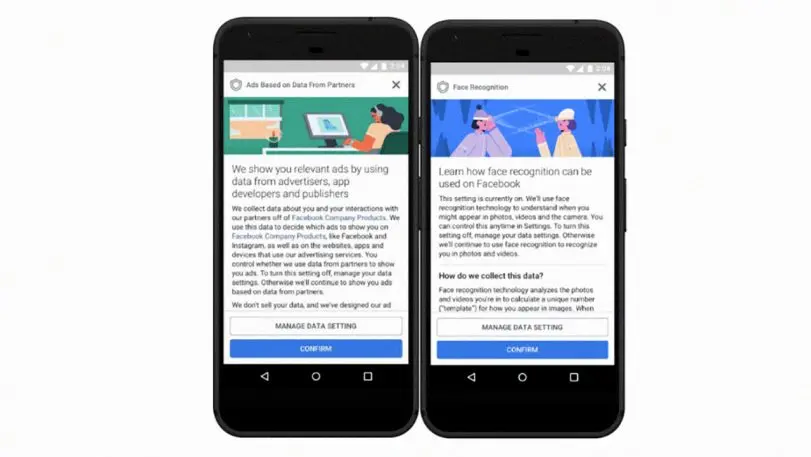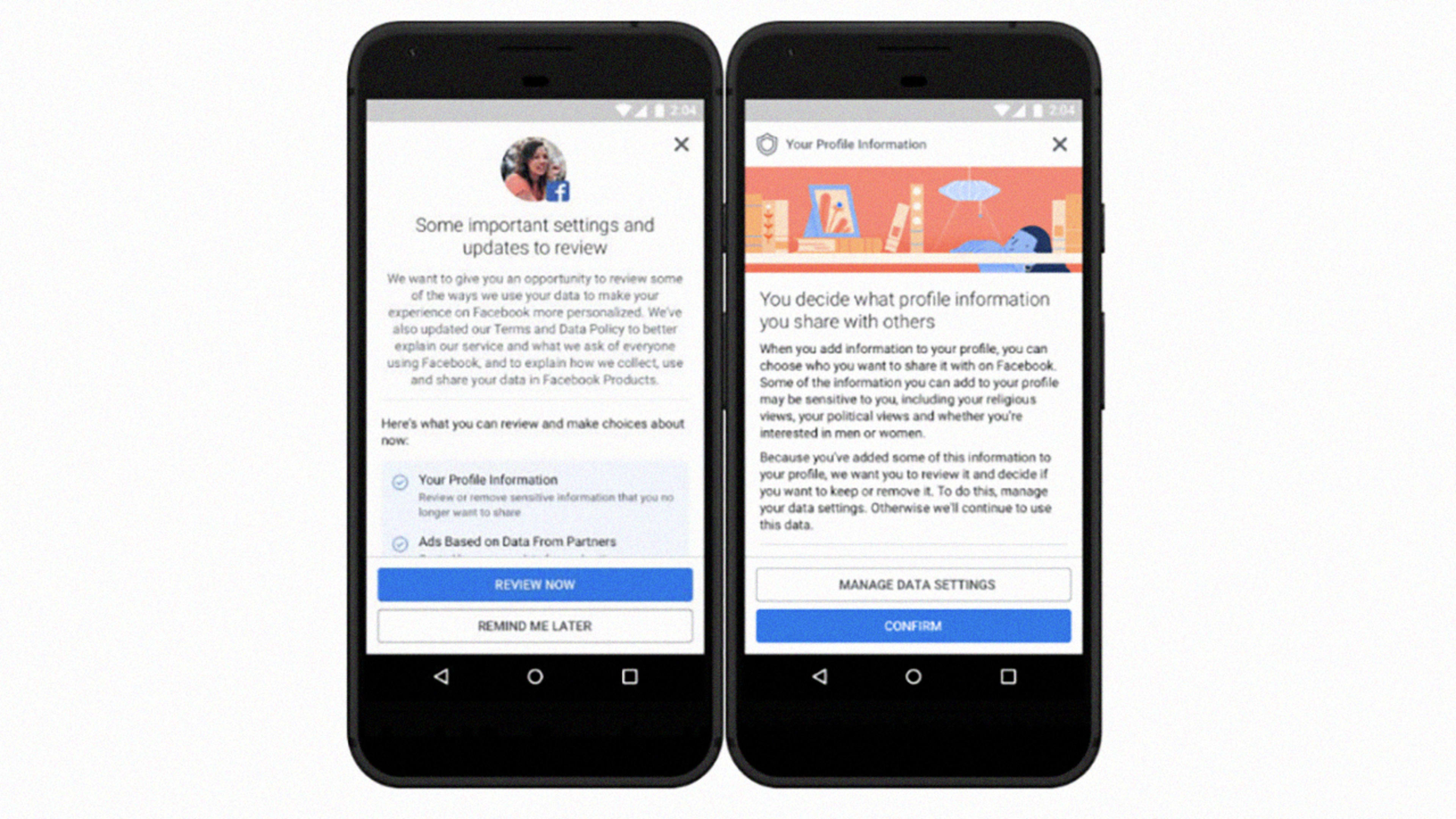Facebook plans to send all its non-European users a full-screen privacy alert when they use the social network in the coming weeks, enabling them to review the information they’ve provided to Facebook and how the company uses it.
The move–one of a flurry of privacy-related announcements in recent months–follows a similar launch in the European Union as part of Facebook’s preparations for the EU’s new stringent General Data Protection Regulation. Users will be prompted to review their settings for ad targeting; the political, religious, and relationship data they’ve shared with the company; updates to Facebook’s privacy policy and terms of service; and information on face recognition, according to the company.
“People will see a summary of the choices they’ve already made and won’t see information about features they’ve already disabled or decided not to use,” according to a blog post from Erin Egan, the company’s chief privacy officer. “For example, if you’ve already disabled face recognition or ads based on data from partners, we won’t ask you to turn them on.”
When Facebook rolled out a similar screen to users in the European market, its simplicity wasn’t seen as purely positive: Critics argued the interstitial screens were designed for users to accept their existing sharing and privacy settings, as well as activating a facial recognition newly available in the market, without too much review. Facebook-blue buttons seem to shepherd users through the process without changing settings; drab, gray alternatives let them change their privacy settings.

The GDPR interstitial consent makes me question the ongoing utility of a Facebook account.
— Stevie Graham (@stevegraham) May 8, 2018
Also, while Facebook says it offers everyone the same privacy protections everywhere, Facebook’s non-EU users are not protected by the new EU law. As a result, for non-EU users, the terms of service differ in certain ways from the GDPR-compliant terms of service shown to EU users.
There are some familiar caveats to certain privacy options. For instance, while users have the ability to prevent Facebook from targeting them with ads based on data it collects about their web browsing activity off Facebook, they can’t prevent Facebook from collecting that data to begin with, and even using it to personalize their News Feeds or improve the product.
Facebook’s move comes as the company continues to respond to heightened privacy regulations in Europe, lingering anxiety over revelations about political consulting firm Cambridge Analytica’s access to Facebook data, and the role of state-funded propaganda on the site during recent elections.
CEO Mark Zuckerberg appeared this week before the European Parliament to mixed reviews (here’s the video), with some politicians and privacy groups saying he was less than forthcoming.
Related: Facebook’s latest transparency move is showing you how much objectionable content it removes
Recognize your brand’s excellence by applying to this year’s Brands That Matter Awards before the early-rate deadline, May 3.
